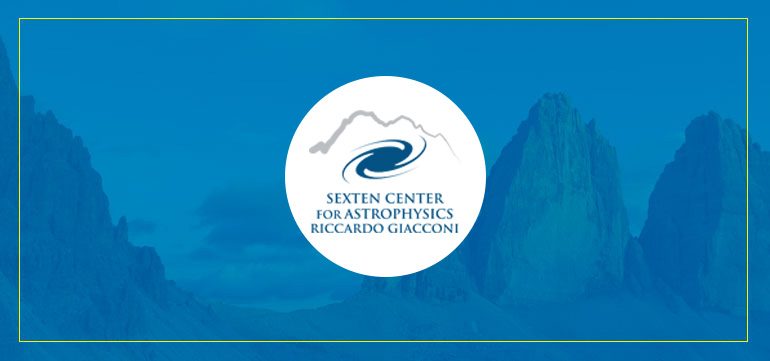High spatial resolution spectroscopy in the era of ALMA, JWST and ELT
LOCATION: Haus Sexten - Via Dolomiti 45, 39030, Sexten
DETAILS
Pushing the limits of our understanding of the Universe requires ever higher resolution
observations across ever wider wavelength ranges. The current success of ALMA, one of
the most demanded facilities worldwide, is a strong testament to this. Since the start of early
science observations, the richness and diversity of the discoveries made possible by a
combination of sensitivity and high spatial resolution, orders of magnitude greater than ever
before, has enthralled the astronomical community. ALMA has offered astronomers the
ability to quantify how early planet forming structures are built (e.g. HL Tau and other ringed
disks) and to detect previously unknown reservoirs of gas in high redshift galaxies, leading to
a revised understanding of how everything from planets to galaxies form and grow.
The scientific goals of most major new facilities are highly complementary to those now
being realised by ALMA. They include increasing our understanding of our local planetary
system and those around other stars, revealing what drives the physics of nearby galaxies,
extending the redshift limit at which we understand the evolution of galaxies and ultimately
revealing how structure is created in the Universe. The combination of high spatial resolution
with spectroscopy drives these, and many other, fields forward. With this workshop, we aim
to bring together researchers working with the leading facilities available today (ALMA) in
order to plan for the next generation (JWST, ELT). Key to the motivation for this workshop is
that astronomers must harness the high spatial resolution spectroscopic capabilities of each
and every one of these facilities in a multi-wavelength approach in order to reach their
scientific goals. We have therefore focussed the meeting around the technique, rather than a
specific science area, in order to capture the combined scientific power. This meeting will
bring together leading researchers from different astrophysical areas and with expertise in all
of these telescopes to plan the programmes we need to answer the most important
outstanding astronomical questions debated today.
A workshop in 2019 is very timely for developing the synergies between these observatories,
something that has not been done before in a joint workshop. ALMA is reaching operational
maturity, providing the scientific backdrop for our future plans. It is now expected that the
call for open time proposals for JWST will be issued approximately one year before the 2021
launch, in the first few months of 2020. A meeting in summer 2019 will thus be perfectly
timed to re-invigorate the thinking in the JWST community for cycle 1 science. Proposals for
JWST Early Release Science have already been selected and so there will be
well-developed detailed science plans to present that will further stimulate discussion. The
ELT instrumentation programme is well underway with the three first instruments
(MICADO+MAORY AO system, METIS, HARMONI) finalising their preliminary designs by
mid-2019 and two new instruments moving from conceptual design to definition of the
scientific requirements and preliminary design (MOSAIC and HIRES).
The workshop will be optimised to foster new panchromatic scientific collaborations and to
generate new observational proposals by striving for a good balance between time for
presentations and time for small group discussions. These collaborations will be fostered
through ensuring that we not only have scientific, but technical (e.g. project scientist)
representation from each observatory. This will enable real time discussion of how to
implement new ideas with each facility. We plan to bring 60-80 people together and ask that
the workshop be considered for Haus Sexten. We will promote diversity and inclusion
through our selection of invited and contributed talks and will actively foster the participation
of early stage researchers.
Alternative link: https://hsrs2019.freemyip.com/
RELATED FILES
No files available yet.
FEE
260 Eur
WORKSHOP CODE FOR PAYMENT
ORGANIZERS
Liz Humphreys (European Southern Observatory) Pamela Klaassen (UK Astronomy Technology Centre) Giuseppina Battaglia (Instituto de Astrofisica de Canarias) Suzanne Ramsay (European Southern Observatory) Livia Origlia (INAF Osservatorio Astronomico di Bologna) Gillian Wright (UK Astronomy Technology Centre)

